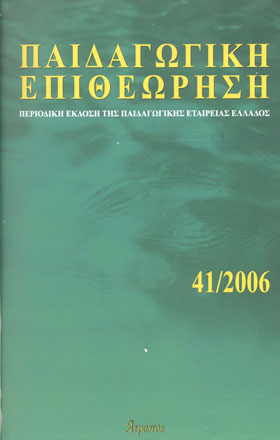Οι πεποιθήσεις των γονέων και των εκπαιδευτικών για τις επιδόσεις των μαθητών στα Μαθηματικά
Main Article Content
Περίληψη
The study examined the accuracy with which parents and teachers can judge their children's achievement in mathematics and the relations between parental beliefs and teachers' beliefs. The participants were 40 first- and second-grade children from low-income families, their mothers and their teachers. Each child performed 28 mathematical tasks, and their parents and teachers predicted how well the child would perform each task. The parents' and teachers' predictions were accurate for most of the tasks but far from perfectly accurate, the main error being to overestimate the children's ability to succeed in the tasks. Accuracy varied as a function of the age of the child (parents and teachers were more accurate for second graders) and across tasks. Parental beliefs and teachers' beliefs were almost the same, indicating that everyday teacher-parent communication is a safe way of helping parents to form accurate beliefs about their children's achievement in school. Results suggest that the key point of the cycle is the teacher, who must be educated to evaluate students accurately and then to inform parents so that they can form accurate beliefs.
Article Details
Τεύχος
Ενότητα
Άρθρα
